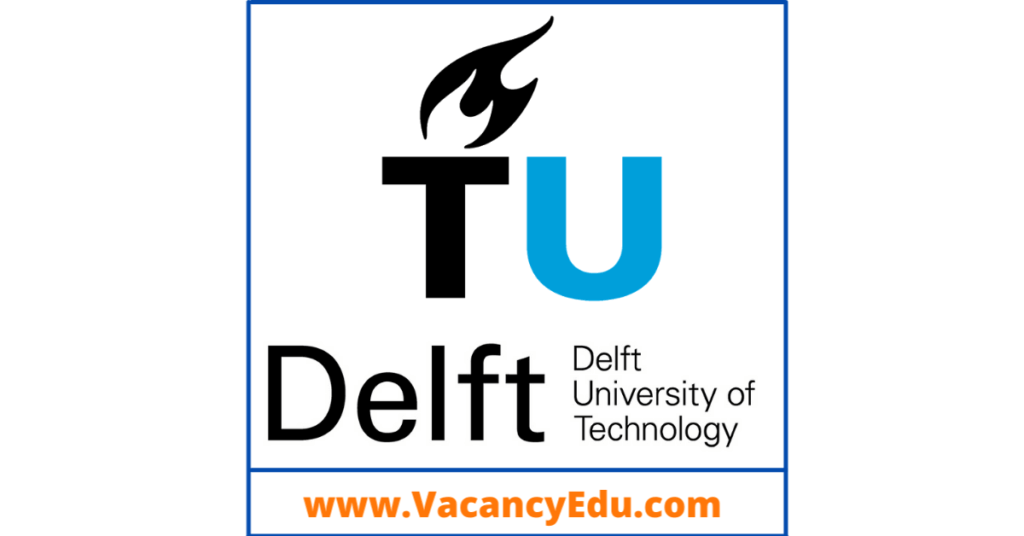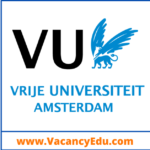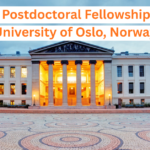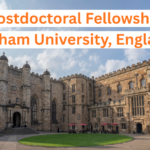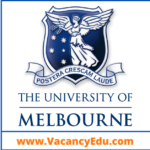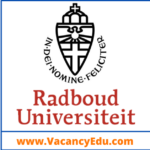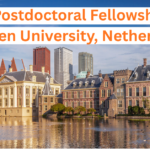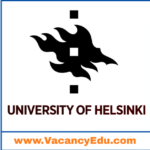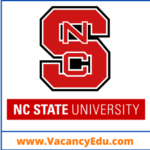Delft University of Technology (TU Delft), Netherlands invites online Application for various Postdoctoral Fellowship in their different Departments. We are providing a list of Postdoc Fellowship positions available at Delft University of Technology (TU Delft), Netherlands.
Eligible candidate may Apply as soon as possible.
(01) Postdoctoral Fellowship Position
Postdoc Fellowship Position summary/title: Postdoc Value-Based Governance of the Hydrogen Transition
Values will be understood in a pluralistic view as situated in, and interactive with, specific institutional, geographic, market and technological contexts. The development and integration of renewable hydrogen technologies should take this into account if the ideal of “hydrogen for good” is to be realized. Yet stakeholders lack the knowledge on the relevant values and the associated integration measures/policies. In developing context-specific standards for value judgment, attention will be given to tensions arising from close interactions between society, policy, academia, and industry, such as (a) divergent value interpretations and expectations, (b) value trade-offs complicating the (re)creation of appropriate rules of the game, and (c) formal and informal stakeholder involvement in rulemaking and the (re)creation of institutional arrangements when translating values into new ‘rules of the game’.
Deadline : 17 Oct 2025
(02) Postdoctoral Fellowship Position
Postdoc summary/title: Postdoc Surface Quality After Reheating in Green Steel Production
Steel production is estimated to account for approximately 7% of global CO₂ emissions. Achieving sustainable steel production requires a combination of green hydrogen usage, full recycling of scrap steel, and the electrification of processes. The adoption of new sustainable process technologies will necessitate changes in heat treatment methods, particularly in heating systems. These changes will primarily affect furnace atmospheres, which in turn influence surface reactions during steel processing.
Additionally, the increased use of recycled steel introduces trace elements—known as tramp elements— alters steel composition. This has important implications for surface quality, surface-dependent mechanical properties, and product manufacturability.
This project aims at understanding the oxidation processes occurring in reheating furnaces, where the as-cast steel is heat-treated to optimise its mechanical properties for entering the rolling mills.
The transition from fossil-based to green furnace atmospheres will lead to an increase in water and CO2 content in the furnace thereby affecting the kinetics of growth and morphology of the oxide layer. In green steelmaking it is also aimed at reusing of steel from scrap. The introduce tramp elements is expecting to influence growth kinetics, type and morphology of the formed oxides. Important features of the oxide layer for further steps in steelmaking are the porosity, the layer thickness (loss of iron) and the adhesion of the oxide to the substrate, a key factor for the descalability.
Oxidation also causes steel surfaces to change from being reflective metals to absorbing dielectrics. The thickness and morphology of the oxide determine the emissivity, that affects both the heat transfer and the temperature profile during processing.
Deadline : 1 Nov 2025
Looking for more Postdoctoral Positions Click Here
(03) Postdoctoral Fellowship Position
Postdoc Fellowship Position summary/title: Postdoc Image Processing for Bioimaging & Microscopy
The PostDoc position is part of research of prof. Bernd Rieger and prof. Sjoerd Stallinga, in which we target (super-resolution) microscopy image processing and analysis method development. The position builds on the lab’s track-record in the field of computational imaging techniques for super-resolution microscopy and image analysis for biological imaging in general.
The position is part of the Netherlands BioImaging Infrastructure (http://eurobioimaging.nl) which is a nation‐wide multi‐sited facility that enables breakthrough in cell/life science across experimental models and imaging modalities. The Delft work is placed in the microscopy innovation node, with biological collaborators at Utrecht University (prof. Lukas Kapitein) and Erasmus Medical Center Rotterdam (prof. Adriaan Houtsmuller and the imaging center team). The PosDoc in encouraged to interact with these collaborators defeining research questions regarding super-resolution microscopy method development. We are in particular interested to build upon our track record of Point Spread Function fitting for single molecule localization microscopy. Here wer combine computational, algorithmic aspects, such as Parallelization, Fisher Information and Maximum Likelihood Estimation, with optical theory.
Deadline : 10 Nov 2025
(04) Postdoctoral Fellowship Position
Postdoc Fellowship Position summary/title: Postdoc Impact of Computational Infrastructures on Public Institutions and Administration of Justice
This is an opening for a two-year postdoc position in the NWO algosoc Project, located with our research group at TU Delft. We invite applications from candidates who are interested in taking a technically informed political economic approach to empirically researching the expansion of computational infrastructures into public institutions. We are especially interested in candidates who want to move the needle from tech reformist projects towards reimagining other socio-technical-economic futures that respect public values and interests in the making. This position is an exciting opportunity for scholars who like to do impactful research in transdisciplinary settings.
Deadline : 12 Oct 2025
(05) Postdoctoral Fellowship Position
Postdoc Fellowship Position summary/title: Postdoc Researcher in Spin-Based Platforms
We are looking for a passionate postdoctoral researcher to join us at the Bosco group and advance theoretical research in solid-state quantum computation, with a focus on spin-based platforms. Our team is actively engaged to advancing the frontiers of both fundamental physics research and practical device development, bridging the gap between fascinating theory and real-world applications.
Our current research in quantum computing spans several exciting directions, and you will have the opportunity to contribute to all of them.
- Quantum Computation with spin qubits: You will have the opportunity to delve into the theoretical aspects of solid-state quantum computing in spin qubits platforms. This includes gaining expertise in device physics, microscopic modelling of different materials, and quantum information theory.
- Hybrid Super-Semiconducting Systems: You will contribute to pioneering research in hybrid super-semiconducting systems for quantum computing applications, particularly in germanium and silicon. This research direction involves for example the coupling of spins to microwave resonators and circuit quantum electrodynamics (circuit QED) with Andreev spin qubits.
- Scaling Up Quantum Computers: You will actively contribute to advancing the field toward practical quantum computation solutions.
Deadline : 20 Oct 2025
Click here for “Postdoc Application Cover Letter Template”
Click here to know “How to write a Postdoc Job Application or Email”
(06) Postdoctoral Fellowship Position
Postdoc Fellowship Position summary/title: Postdoc in Hearing Aid Signal Processing
Good hearing is essential for active participation in society. Hearing impairments can lead to various challenges, from frustration and social isolation—such as difficulties understanding speech in noisy environments—to serious safety risks, like the inability to localize sound sources in traffic.
Hearing aids help mitigate hearing loss by enhancing speech intelligibility, improving sound localization, and increasing environmental awareness. However, most existing hearing aid algorithms optimize for only one of these objectives at a time, often at the expense of the others. To enhance hearing aid performance across diverse scenarios, we aim to develop innovative algorithms that dynamically balance the improvement of speech intelligibility, sound localization, and environmental awareness, dependent on the context.
To tackle this challenge, we are seeking a postdoctoral researcher with expertise in speech signal processing, optimization, machine learning, and models of hearing and perception.
This is a full-time, three-year position within the audio and speech processing team of the Signal Processing Systems (SPS) Section. In the SPS section, we conduct research in array signal processing, graph signal processing, convex optimization, distributed processing, machine learning, and tensor analysis. Our applications span various domains, including audio and acoustics, wireless communication, radio astronomy, biomedical signal processing, and distributed sensing from space.
Deadline : 16 Nov 2025
(07) Postdoctoral Fellowship Position
Postdoc Fellowship Position summary/title: Postdoc Prognostics for Future Aviation Batteries
This postdoctoral position is part of MODABAT – Modular, Scalable, and Technology-Open Design for Future Aviation Batteries, a project that aims to develop an airworthy battery system for an ultra-efficient regional aircraft with a hybrid-electric propulsion system, targeted for entry into service by 2035. Given the rapid evolution of various battery technologies, it is currently uncertain which specific technology will be suitable for aircraft integration. To address this uncertainty, MODABAT adopts a modular, scalable, and technology-open battery system design approach, ensuring adaptability to the ambitious timeline and the evolving technological landscape of the aviation sector.
The postdoctoral researcher will focus on developing prognostic methodologies capable of predicting discharge time while accounting for both battery aging and operational conditions. These predictions will provide valuable input for an intelligent, prognostics-based Battery Management System (BMS). Special attention will be given to ensuring that the developed methodology achieves enhanced reliability, robustness, and feasibility, aligning with the targeted entry into service by 2035.
Deadline : 19 Oct 2025
(08) Postdoctoral Fellowship Position
Postdoc Fellowship Position summary/title: Postdoc Life Marker Chip Surface Functionalization for Biosensing
We seek a postdoctoral researcher to develop and optimize surface functionalization strategies for optical chips, focusing on molecular recognition systems capable of operating in extreme space environments.
- Surface Chemistry Development: Design and optimize chip surface chemistry for target biomolecules including amino acids, nucleobases, and lipid biomarkers. Explore multiple surface modification strategies including Poly-L-lysine, silane-based approaches, and novel functionalization techniques.
- Molecular Recognition Elements: Characterize the performance of various receptors, ranging from Aptamers to Molecularly Imprinted Polymers (MIPs), optimized for specificity, affinity, binding characteristics, and photonic chip integration.
- Establishing laboratory facilities: Lead the installation of new measurement equipment and setup new lab facilities and protocols appropriate for Life Marker Chip studies. Supervise student using these new facilities.
- Space Environment Testing: Support and supervise comprehensive characterization studies including thermal cycling stability, radiation exposure effects, and long-term vacuum stability of functionalized chips.
- Reporting: Communicate findings to project partners with diverse backgrounds (e.g., space systems engineering, astrobiology, microfluidics) to support the development of a prototype LMCOOL instrument for space operation. Help outline protocols and methodologies for operation in planetary environments. Disseminate findings in the form of project reports, research papers, and at conferences.
Deadline : 10 October 2025
Click here to know “How to Write an Effective Cover Letter”
(09) Postdoctoral Fellowship Position
Postdoc Fellowship Position summary/title: Postdoc in Quantum physics/Quantum Information Science
We are seeking for a motivated Postdoctoral Researcher to join the group of Dr. Viatcheslav Dobrovitski to do the research on the dephasing of entangled states of spin and photonic qubits in quantum networks. The postdoc will play an important role in advancing the theoretical understanding of decoherence and its impact on scalable quantum technologies.
As a Postdoctoral Researcher you will :
- Conduct research on the decoherence of entangled spin qubits in semiconductors (≈15%).
- Conduct research on the dephasing of entangled photonic qubits in quantum networks (≈85%).
- Perform analytical and/or numerical studies and analyse results.
- Prepare and submit 1–2 scientific publications.
You will be part of a collaborative and supportive research environment at the heart of the Delft University campus. Our team values diversity and fosters an inclusive, international culture.
Deadline : 12 October 2025
Connect with Us for Latest Job updates
(10) Postdoctoral Fellowship Position
Postdoc Fellowship Position summary/title: Postdoc on Hydraulic Infrastructure and Flood Risk Modelling
Despite significant progress in flood risk management, the Netherlands remains highly vulnerable to flooding. The devastating events of 2021 and 2023 were powerful reminders of this risk and underscored the urgent need to strengthen community resilience. The Euregio Meuse-Rhine (EMR) region is of particular concern, as its international context adds further complexity to flood preparedness and demands shared approaches and coordinated responses.
To address these challenges, the Hydraulic Engineering Department at TU Delft is seeking a motivated and experienced Postdoctoral Researcher. In this role, you will investigate how innovative water retention solutions (particularly nature-based approaches) can enhance resilience, combined with a detailed assessment of the performance of critical hydraulic infrastructure during extreme events. You will develop and test new tools to improve flood prediction, strengthen risk assessment, and support the implementation of effective flood management strategies across the EMR. You will also develop and benchmark modelling techniques, explore technical, economic, and operational trade-offs, and create decision-support tools to help stakeholders design effective and adaptive flood risk management strategies. This work will be demonstrated in real-world case studies, ensuring that research outcomes directly inform both long-term planning and short-term emergency response.
As a Postdoc in our team, you will work at the intersection of Hydraulic Engineering and Climate Adaptation, fostering synergies between the Faculties of Civil Engineering and Geosciences and Technology, Policy, and Management. You will collaborate with leading European universities, local authorities, and international partners through strategic initiatives such as Interreg Flood Wisdom and the Pandemic & Disaster Preparedness Center (PDPC). This position offers a unique opportunity to combine fundamental research with real-world application, creating the tools, knowledge, and strategies needed to better protect communities from the floods of tomorrow. Our team promotes a healthy and collaborative work environment where diverse perspectives are valued, and where you will be supported to bring out the best of yourself.
Deadline : 22 Oct 2025
(11) Postdoctoral Fellowship Position
Postdoc Fellowship Position summary/title: Postdoc in Probability Theory
The Postdoc position is in the area of probability theory and statistical mechanics. The project is a NWO funded “open competition project” which deals with the study of metastability for dilute spin systems. These are classical models of statistical mechanics with bond disorder, i.e. where deterministic pair interactions are replaced by random variables. The main objective is to develop a robust mathematical approach to study the metastable behaviour of these models. Metastability is a universal phenomenon, where a system spends a long time in a state of “pseudo equilibrium” until it crosses over to a stable state. This project aims at identifying the quantities characterising the stochastic nature of this phenomenon, such as the average and the distribution of the random transition time.
Deadline : 17 Oct 2025
Polite Follow-Up Email to Professor : When and How You should Write
(12) Postdoctoral Fellowship Position
Postdoc Fellowship Position summary/title: Postdoc in Tactile Robotics for Dexterous Manipulation
Dexterous manipulation represents one of robotics’ most fundamental unsolved problems. While robots excel at precise positioning and heavy lifting, they fail at tasks humans perform unconsciously – sliding a glass without spilling, rotating a screwdriver with proper torque, or coordinating fingers to tie shoelaces. This gap has profound implications for manufacturing, healthcare, domestic assistance, and applications where robots must interact delicately with the physical world.
Current robotic systems rely primarily on vision and force sensors, missing the rich tactile information that enables human dexterity. Our lab pioneered a new tactile sensor technology (best student paper award at ICRA 2025) that offers unprecedented spatial resolution and sensitivity, providing robots with meaningful tactile sensing. This position represents a unique opportunity to leverage rich tactile information for dexterous manipulation.
Your role and impact as postdoctoral researcher, you’ll lead the research in leveraging our tactile sensor technology to control grippers and multi-finger hands. Your primary mission involves developing control strategies that enable robots to perform complex manipulation through tactile feedback. You’ll focus on three critical aspects of the problem: sliding motion control, rotation strategies for precise tool manipulation, and multi-finger coordination for more complex tasks.
We expect that you will blend theoretical approaches with hands-on experimentation, as well as collaborate with PhD candidates. You’ll design experiments using our robotic platform, analyze tactile data patterns, implement real-time control algorithms, and validate performance across diverse scenarios.
Deadline : 28 Oct 2025
(13) Postdoctoral Fellowship Position
Postdoc Fellowship Position summary/title: PostDoc on Digital CIM-based AI Accelerator Design
Computation-in-Memory (CIM) is being investigated for energy-efficient artificial intelligence (AI) applications. However, this new computing paradigm faces various design challenges in terms of design and technology challenges, application mapping and reliability issues. Thus, there is a growing demand for efficient and reliable digital CIM-based neuromorphic system design which includes techniques such as reliability-aware mapping and optimization techniques as well as high-quality, and cost-effective mitigation schemes that can guarantee efficient and reliable operation.
- The Computer Engineering (CE) section of the Quantum & Computer Engineering (QCE) department is looking for a highly motivated PostDoc candidate who wants to work on efficient and reliable digital CIM-based AI accelerator design for future neuromorphic accelerators. The candidate will work on the following:
- Designing efficient digital CIM architecture using advanced CMOS nodes
- Develop system architecture for digital CIM accelerator
- Develop efficient mapping schemes of AI workloads
- Identifying the reliability failure mechanisms of digital CIM architectures.
- Developing solutions to address the reliability issues.
Deadline : 19 Oct 2025
(14) Postdoctoral Fellowship Position
Postdoc Fellowship Position summary/title: PostDoc on Analog CIM-based AI Accelerator Design
Various emerging device technologies and computing paradigms are being investigated for energy-efficient artificial intelligence (AI) applications. Some examples are RRAM or STT-MRAM collectively known as memristor-based Computation-in-Memory (CIM) accelerators. However, these new technologies and computing paradigms face various design challenges in terms of design and technology challenges, application mapping and reliability and non-ideality issues. Thus, there is a growing demand for efficient and reliable memristor CIM-based neuromorphic system design which includes techniques such as reliability-aware mapping and optimization techniques as well as high-quality, and cost-effective mitigation schemes that can guarantee efficient and reliable memristor-based CIM operation for AI workloads.
The Computer Engineering (CE) section of the Quantum & Computer Engineering (QCE) department is looking for a highly motivated PostDoc candidate who wants to work on efficient and reliable analog CIM-based AI accelerator design for future neuromorphic accelerators. The candidate will work on the following:
- Designing efficient analog CIM architecture using emerging memristive devices
- Develop system architecture for analog CIM accelerator
- Develop efficient mapping schemes of AI workloads
- Identifying the non-ideality issues of analog CIM architectures.
- Developing solutions to address the non-ideality issues.
Deadline : 19 Oct 2025
(15) Postdoctoral Fellowship Position
Postdoc Fellowship Position summary/title: Postdoc on Heat Transfer Phenomena in Manufacturing Discontinuous Fibre Composites
The path to sustainable aviation relies on innovative, efficient production technologies. Thermoplastic composites, combined with novel material architectures, are central to this transition, enabling recyclable, lightweight structures. Research now targets energy-efficient, automated processes and machinery to deliver high-quality components for the next generation of aircraft.
This postdoctoral project aims to experimentally characterize the temperature distribution and heat transfer during the heating of microscopic aggregates of thermoplastic cut tapes, with the goal of accelerating process development for circular materials. You will generate valuable multi-scale data (micro- to mesoscopic) relevant to the manufacturing of aerospace thermoplastic composites, and will play a key role in linking experiments with simulations from a companion PhD project. The work will involve close collaboration with industrial partners and is expected to provide both fundamental insight and practical guidance for advanced composite processing.
The project is conducted at the department of Aerospace Materials and Structures (ASM) of the Faculty of Aerospace Engineering (AE) and will be embedded within the Lightweight Composites and Structures project of the “Luchtvaart in Transitie” (LiT) initiative, which brings together a variety of companies and knowledge institutes to develop materials, production technology and structures for ultra-efficient aircraft. This large-scale initiative of the Dutch growth fund is aligned with the mission of the ASM department to make aviation and spaceflight more sustainable by developing novel structures and materials that have a smaller environmental footprint by using less energy and enabling easier recycling, while simultaneously researching how to make structures smarter, lighter and safer, to support the transition to new sources of energy.
Deadline : 12 Oct 2025
(16) Postdoctoral Fellowship Position
Postdoc Fellowship Position summary/title: PostDoc in Human-Centered Multimodal AI for Negotiation Support
Negotiations involve understanding and managing interpersonal relationships, motivations, and conflicts. While there is existing research on building negotiating agents, there remains a gap to integrate situated understanding of human behavior and how these affect the negotiation process. In this project, you will contribute to the research in building more effective, adaptive, and ethically aware decision-making support in multi-stakeholder negotiations.
This project is part of work package 5 of the Red&Blue consortium (https://redblueclimate.nl/) that focuses on climate change in the built environment.and aims to co-design and co-develop an Integrative Forum (IF) to facilitate two-way transdisciplinary exchange and dialogue on climate risk management. Within that scope of climate discussions and negotiation, you will develop methods to analyze human behaviors and decision-making processes using multimodal data (text, audio, and/or video), particularly for in-the-wild settings.
The technical challenge of the project is to build predictive models that capture both the substance of negotiations and the dynamic patterns of human interaction. The real-life scenarios of Red&Blue introduce unique challenges, including missing or noisy modalities, shifting contexts, and diverse individual preferences. Tackling these challenges calls for advancing adaptive multimodal machine learning approaches that remain robust while engaging with practical concerns of privacy, ethics, and user agency. Throughout this project, you will contribute to data collection experiments for real-life negotiation settings.
Deadline : 20 Oct 2025
Top 25 Free Statistical Analysis Software 2024
(17) Postdoctoral Fellowship Position
Postdoc Fellowship Position summary/title: Postdoc Durability Modeling of Self-Compacting Concrete Made with Mineralized SCMs
We invite applications for a postdoctoral researcher to advance the multi-scale durability modeling of self-compacting concrete (SCC) incorporating mineralized SCMs. The research will focus on:
- Modeling long-term durability against chloride ingress and carbonation;
- Predicting service life of precast SCC elements;
- Coupling experimental durability data with advanced numerical simulations.
The researcher will be based in the Microlab (Section Materials & Environment), Faculty of Civil Engineering and Geosciences, Delft University of Technology (TU Delft), and will collaborate closely with partners at KIT (Germany) and CSIC (Spain).
Deadline : 30 Oct 2025
About Delft University of Technology (TU Delft), Netherlands –Official Website
Delft University of Technology, also known as TU Delft, is the oldest and largest Dutch public technical university. Located in Delft, Netherlands, it is consistently ranked as one of the best universities in the Netherlands, and as of 2020 it is ranked by QS World University Rankings among the top 15 engineering and technology universities in the world.
With eight faculties and numerous research institutes, it has more than 26,000 students (undergraduate and postgraduate) and 6,000 employees (teaching, research, support and management staff).
The university was established on 8 January 1842 by William II of the Netherlands as a Royal Academy, with the primary purpose of training civil servants for work in the Dutch East Indies. The school expanded its research and education curriculum over time, becoming a polytechnic school in 1864 and an institute of technology (making it a full-fledged university) in 1905. It changed its name to Delft University of Technology in 1986.
Dutch Nobel laureates Jacobus Henricus van ‘t Hoff, Heike Kamerlingh Onnes, and Simon van der Meer have been associated with TU Delft. TU Delft is a member of several university federations, including the IDEA League, CESAER, UNITECH International and 4TU.
Disclaimer: We try to ensure that the information we post on VacancyEdu.com is accurate. However, despite our best efforts, some of the content may contain errors. You can trust us, but please conduct your own checks too.
Related Posts
- Postdoctoral Fellowship (17) at University of Calgary, Canada

- Postdoctoral Fellowship (04) at Vrije University Amsterdam, Netherlands

- Postdoctoral Fellowship (16) at University of Oslo, Norway

- Postdoctoral Fellowship (05) at Durham University, England

- Postdoctoral Fellowship (08) at University of Melbourne, Australia

- Postdoctoral Fellowship (03) at Radboud University, Nijmegen, Netherlands

- Postdoctoral Fellowship (11) at Leiden University, Netherlands

- Postdoctoral Fellowship (12) at University of Helsinki, Finland

- Postdoctoral Fellowship (22) at North Carolina State University, USA


